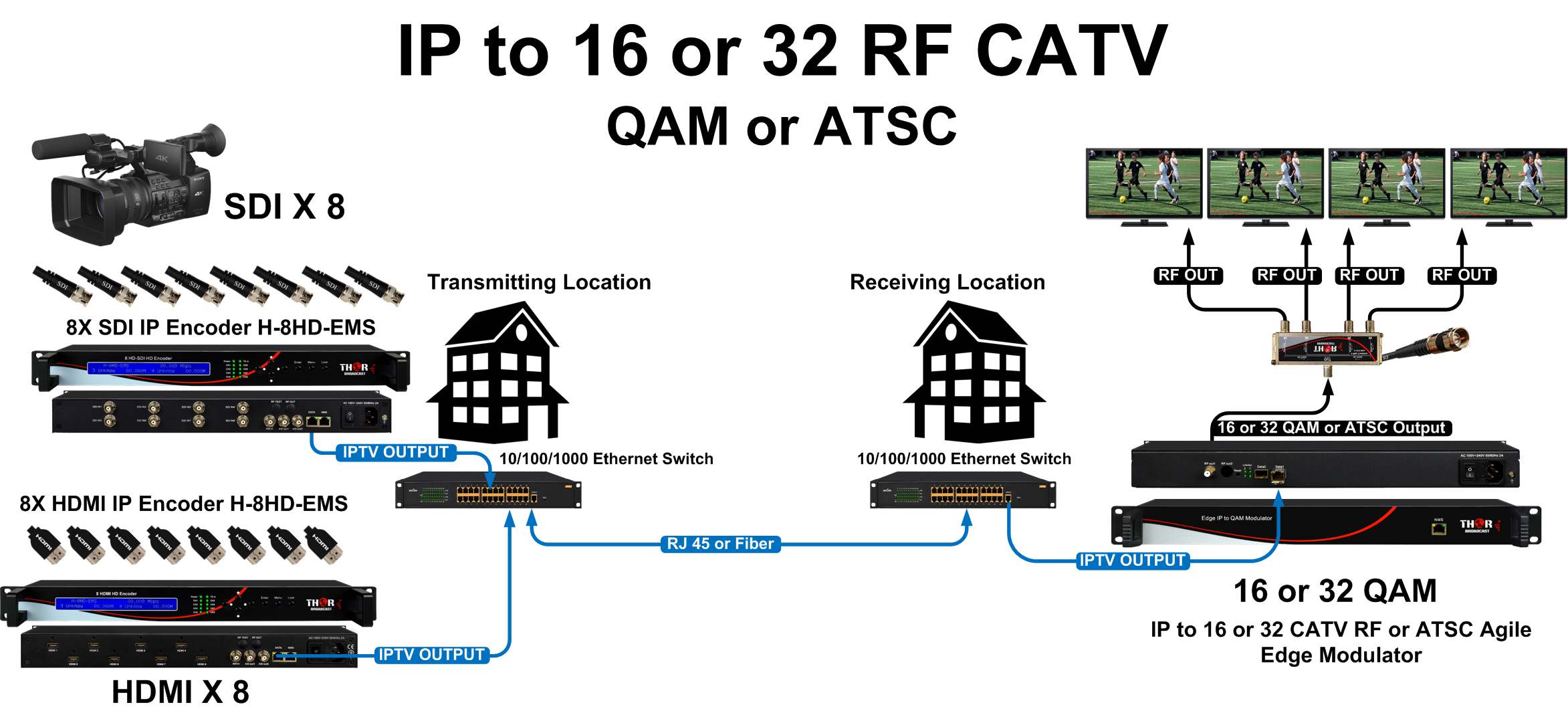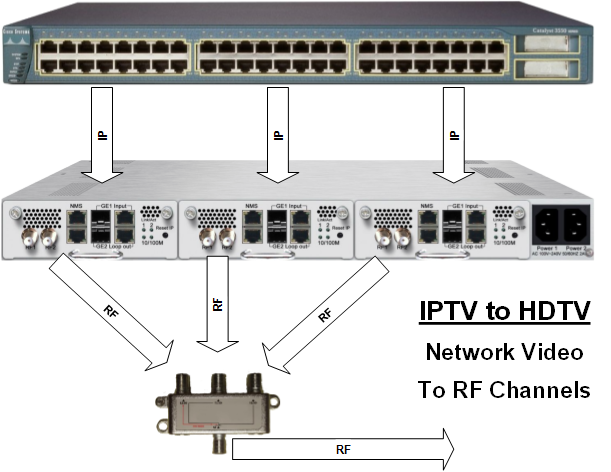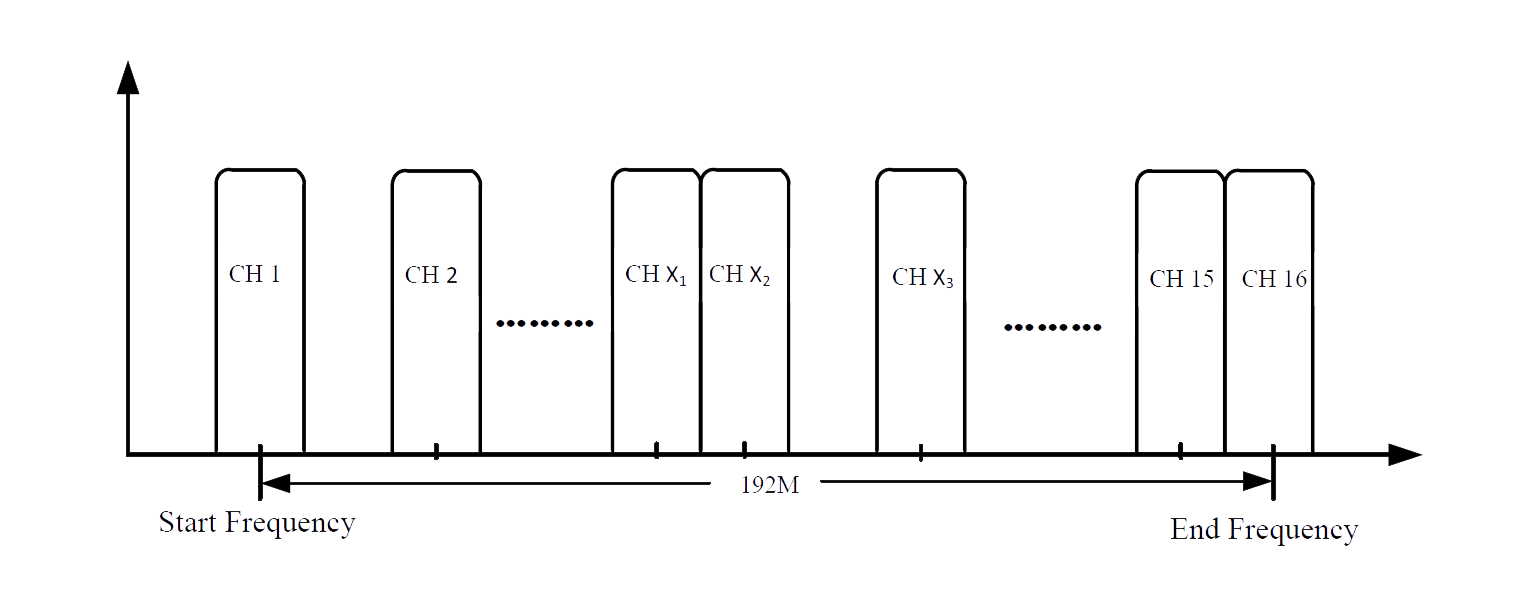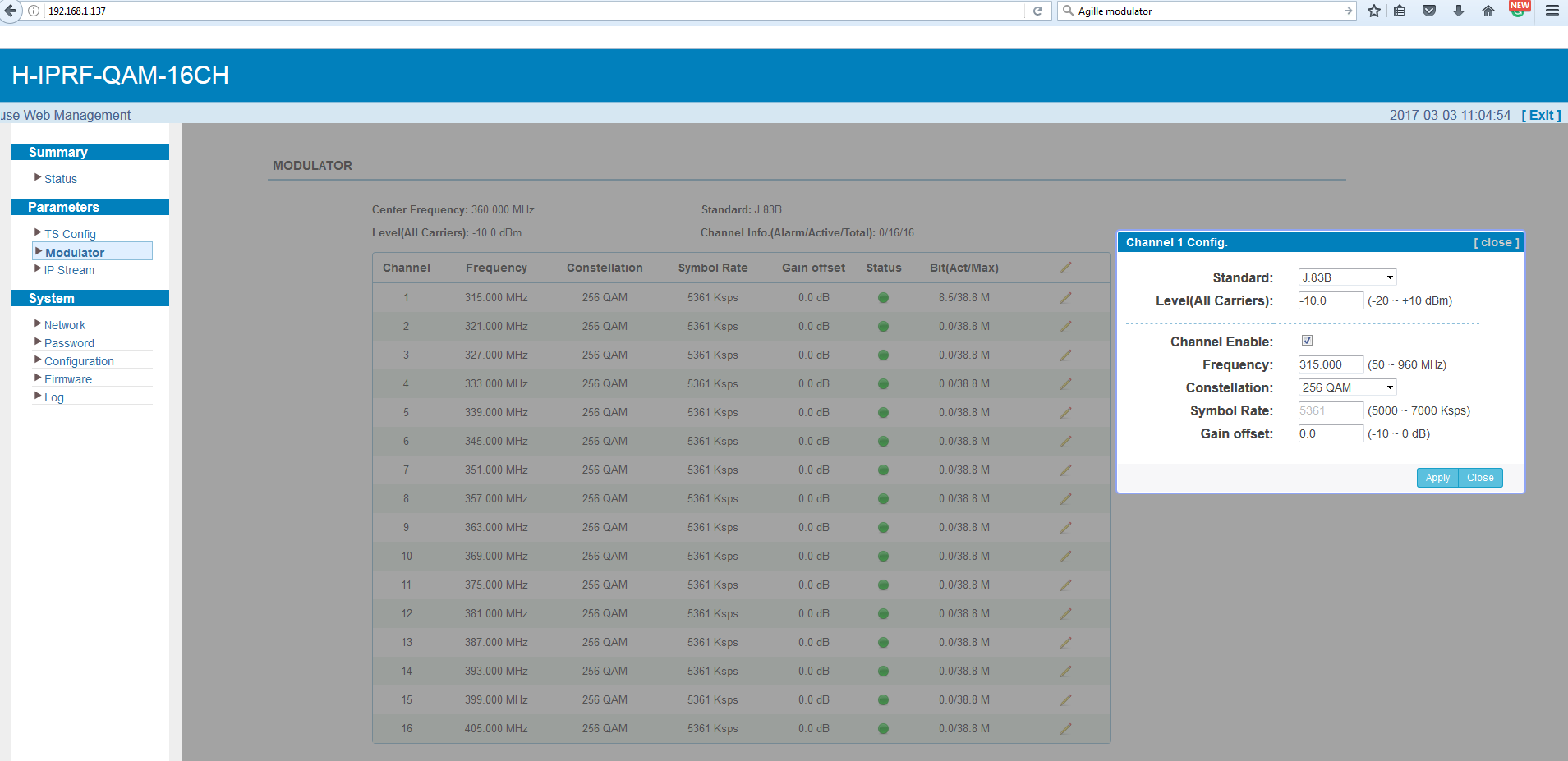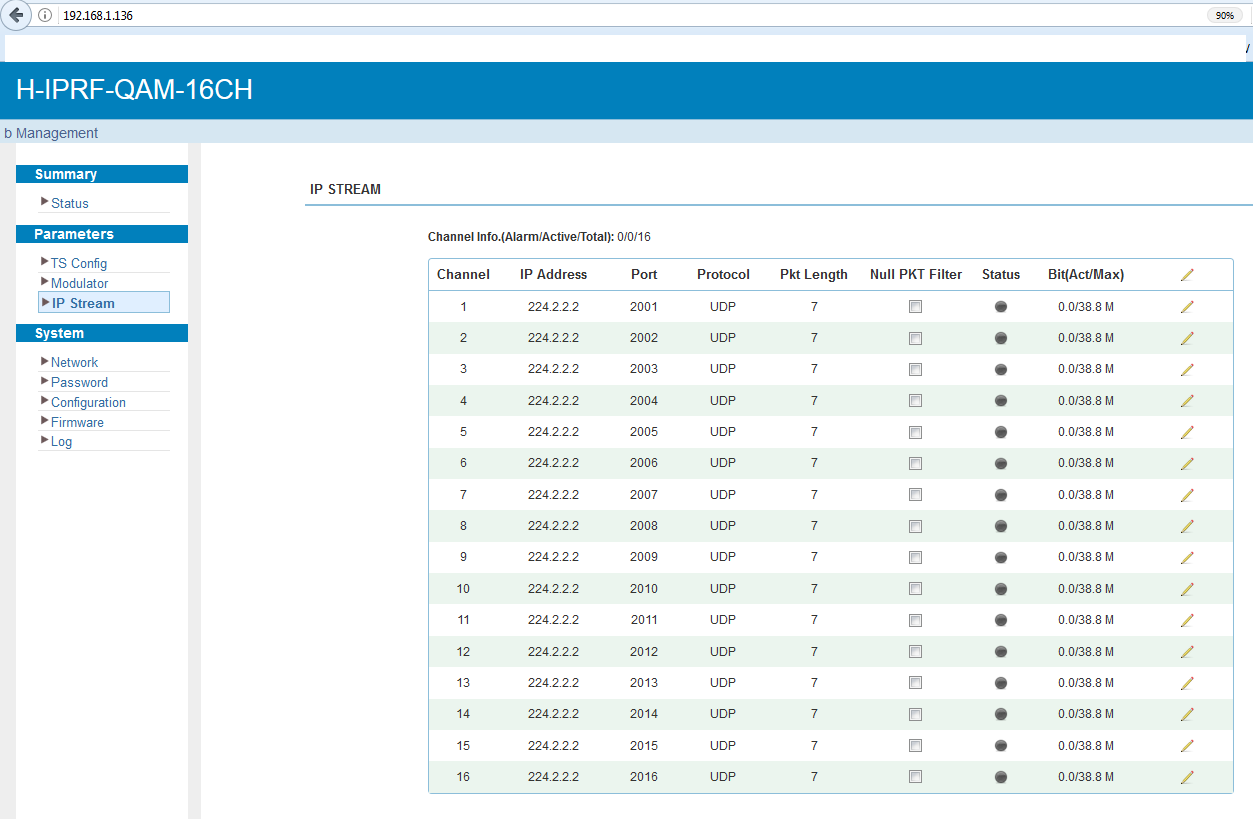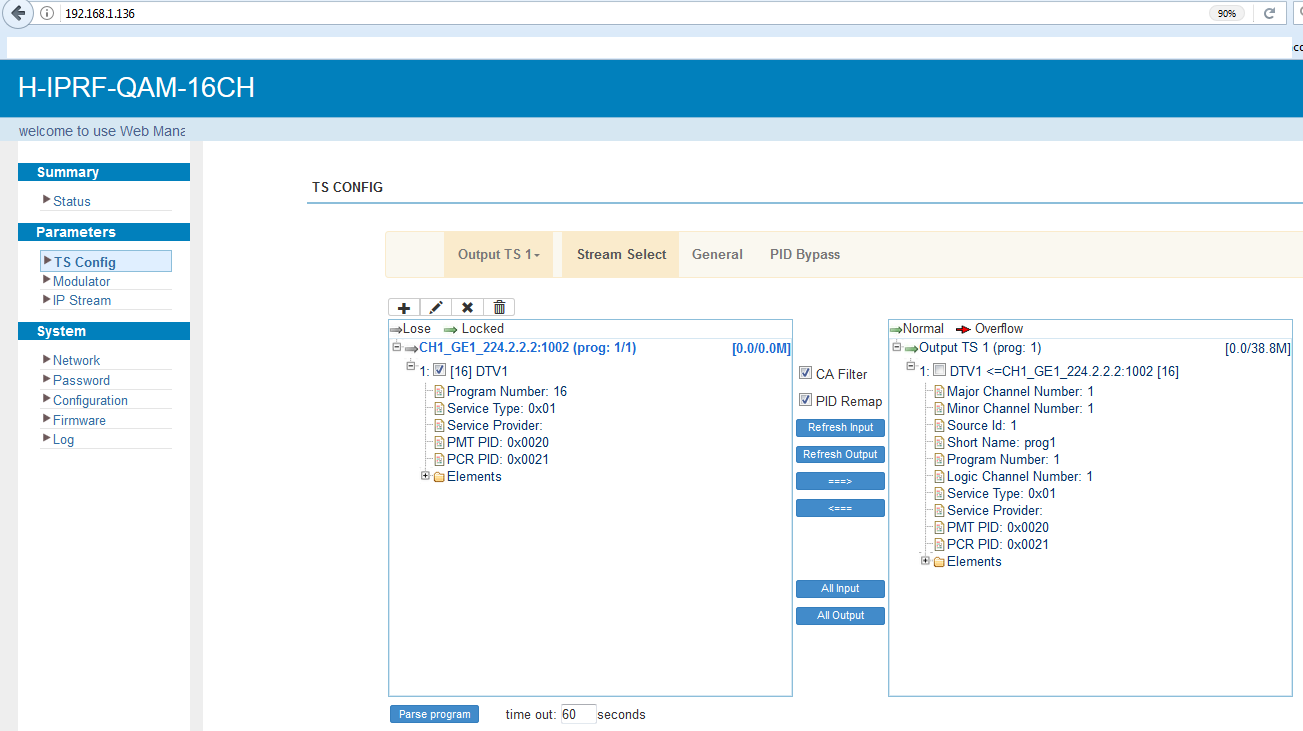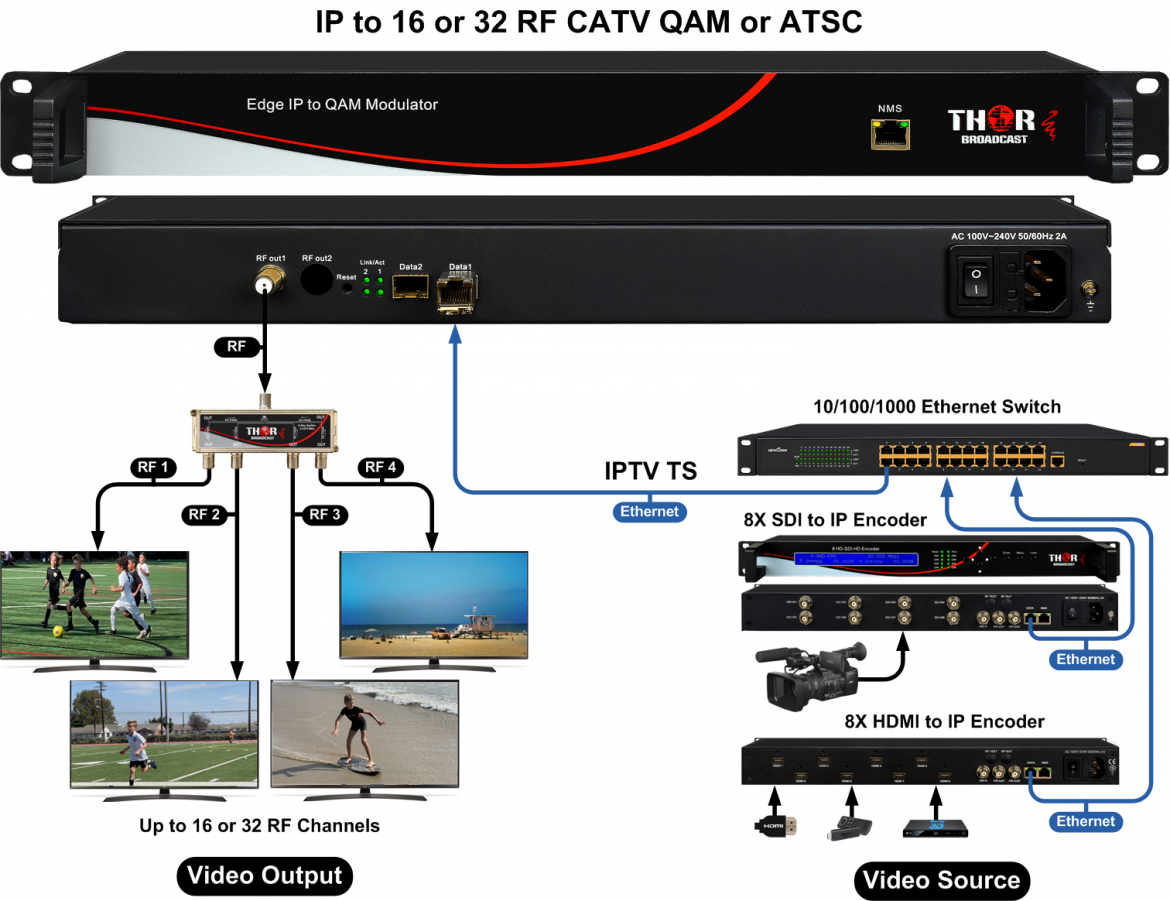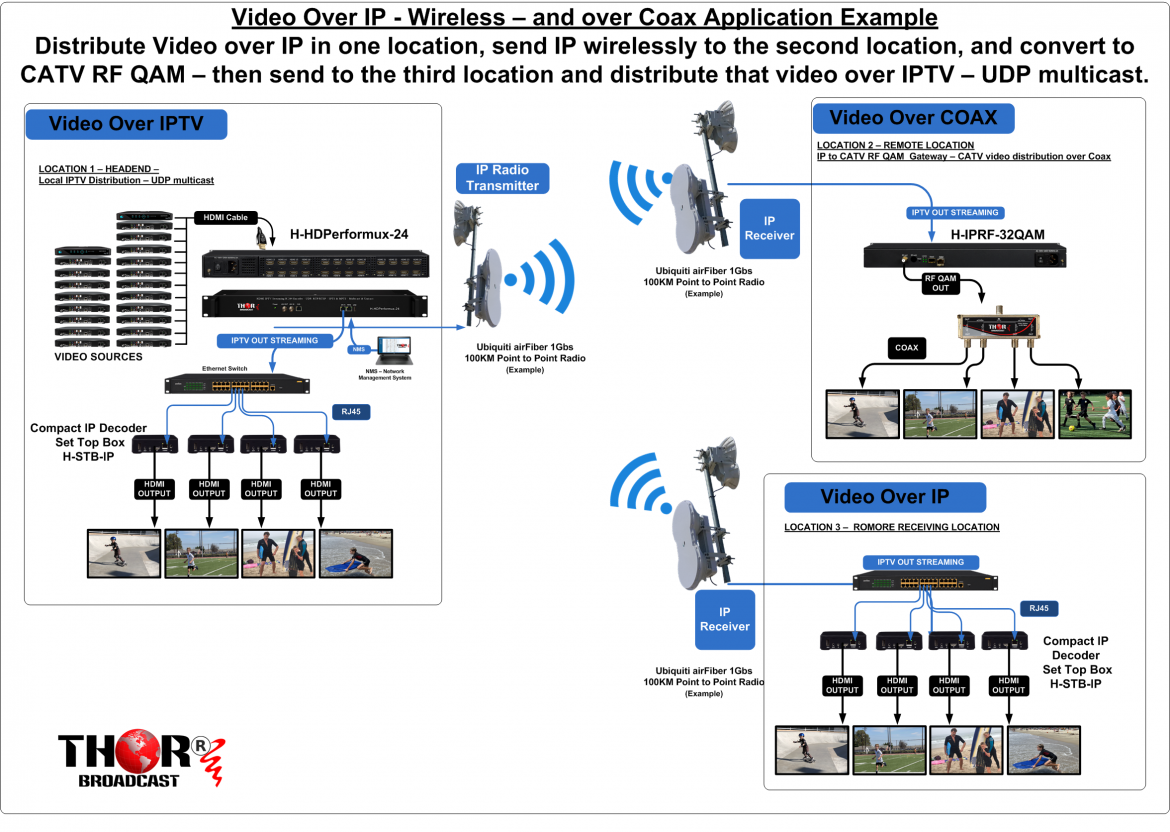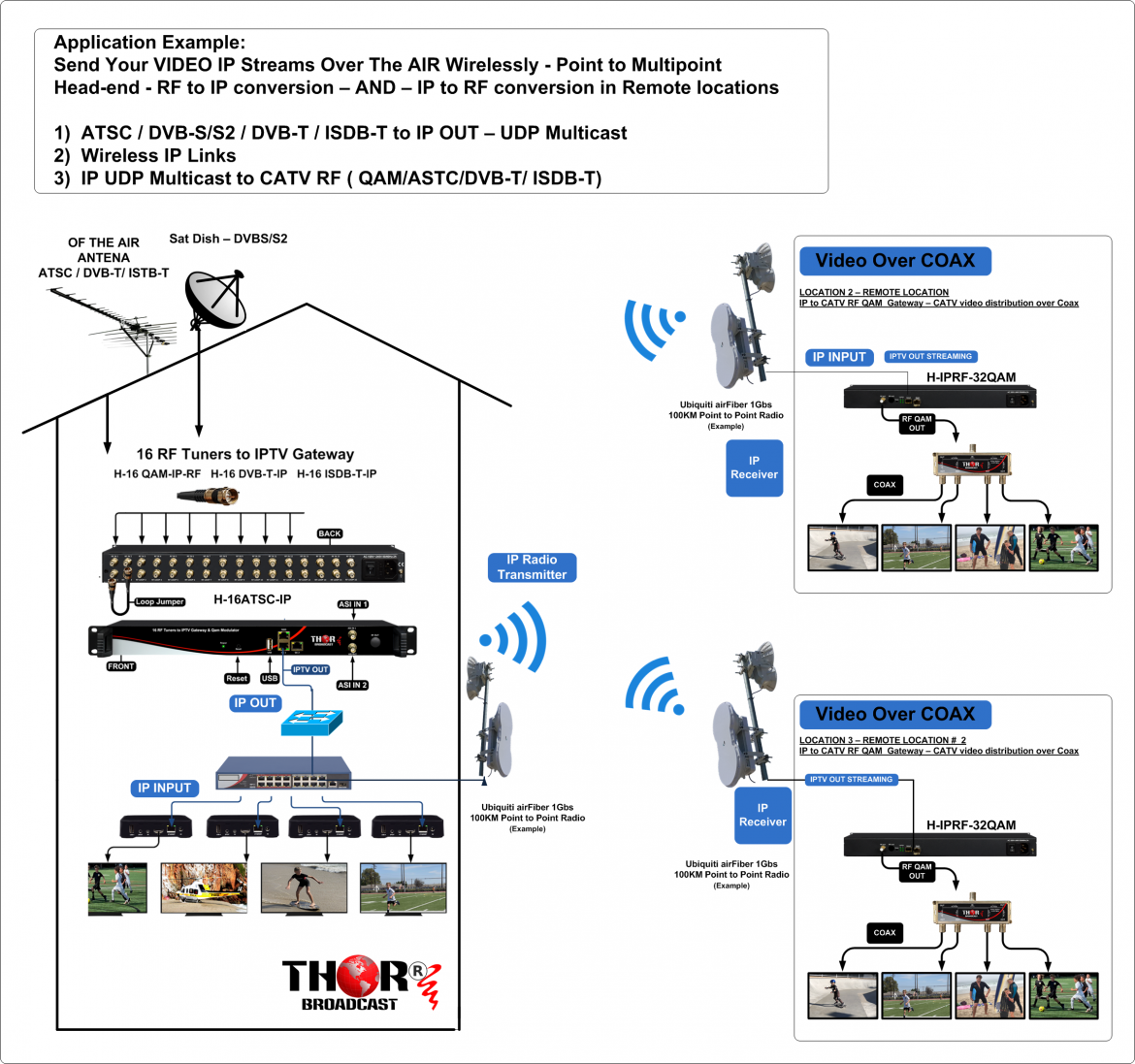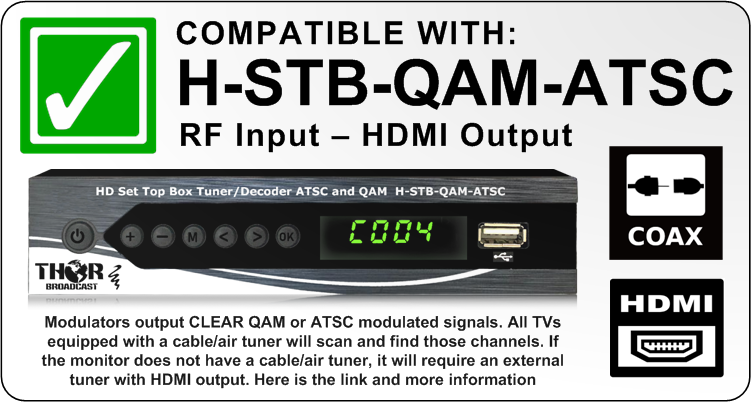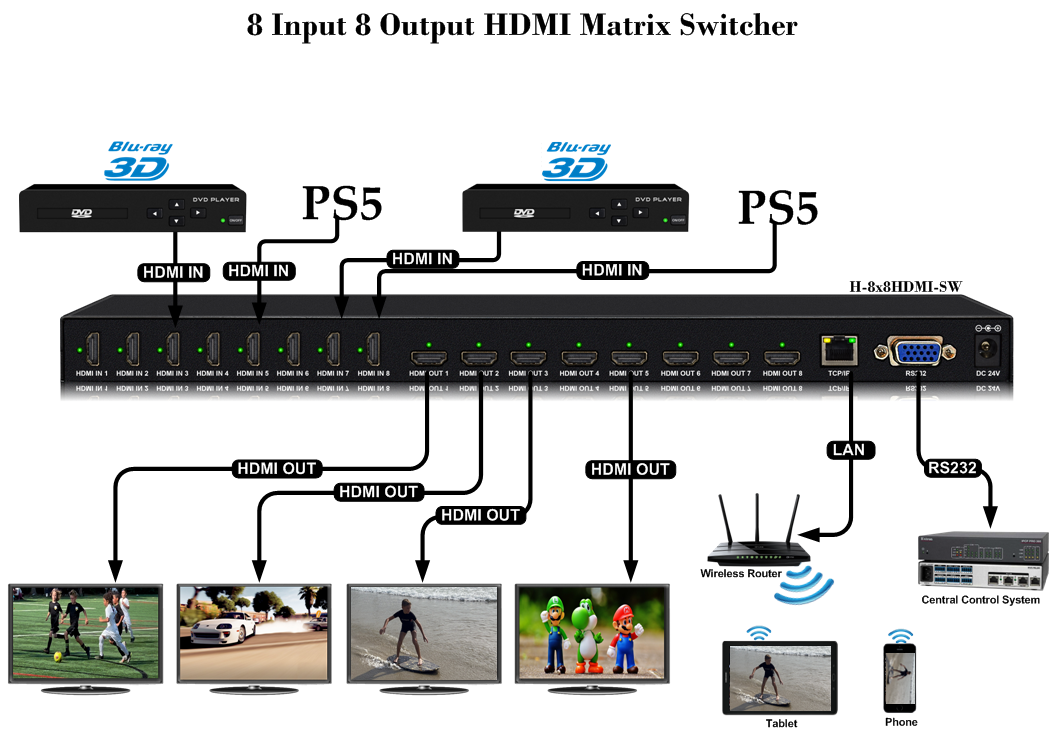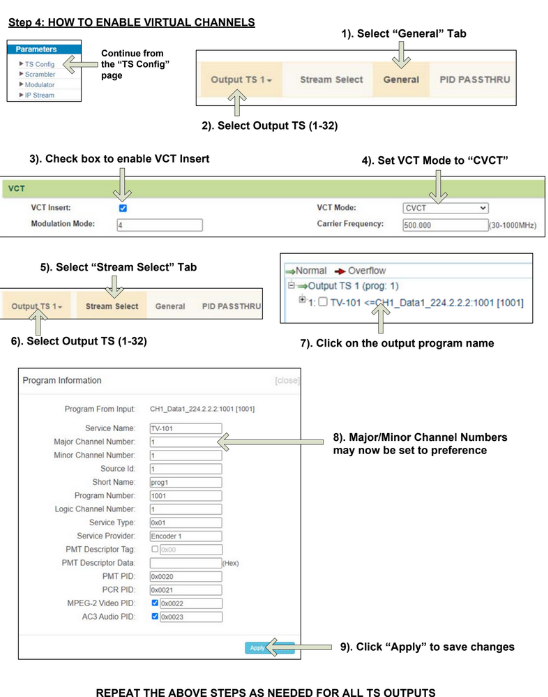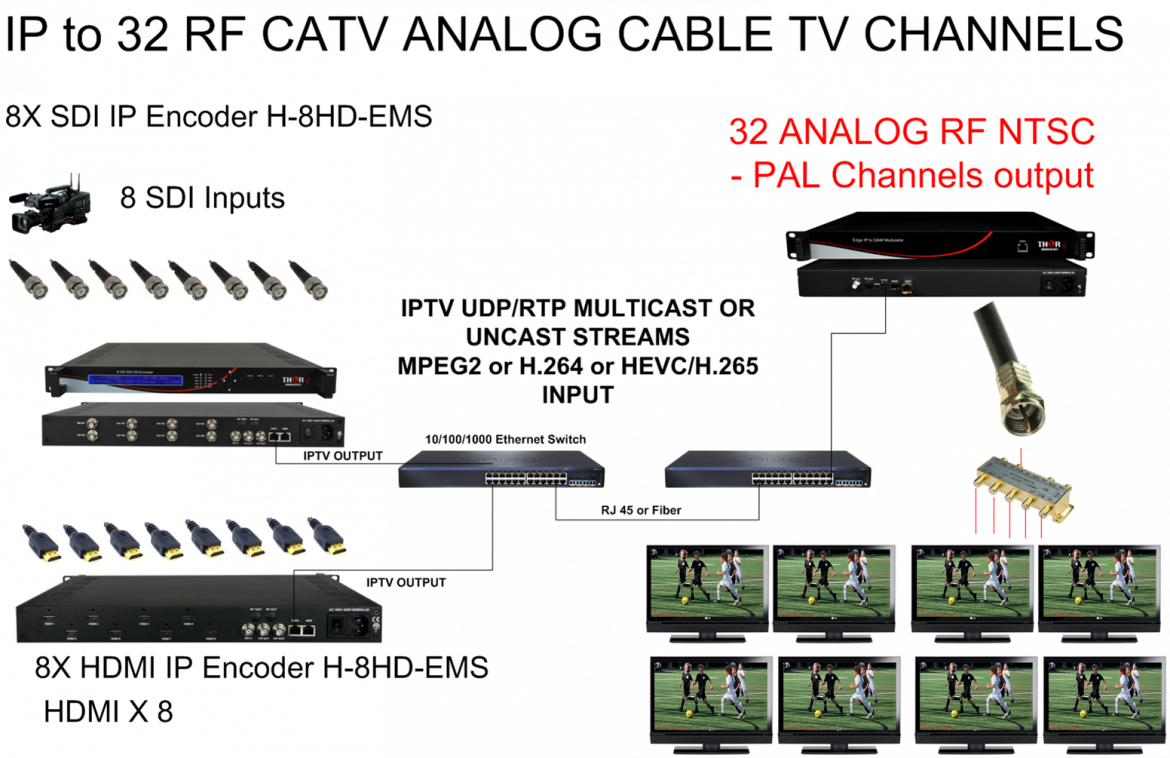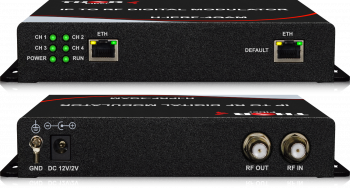Answer: So the actual answer varies. Reality is that the QAM frequency can carry up to 38mbps of data; so you can use that pipe however you want.
You can do 1 HD at 19mbps, and 3 SD at 6mbps
or whatever breakdown you like.
What also matters is if you are sending H264 or MPEG2, naturally H264 is more dense, however most TV's can't see H264, so realistically if you use MPEG2 and want full 1080p60 HD, then we suggest 2 programs at 19mbps; example you can have 20.1 and 20.5 using one frequency but you have two full HD programs on one frequency or channel.
You can also send 720p at 9mbps each, and technically have 4 programs of HD; however as you know there is a big difference between 720p, 1080i, and 1080p.
These are all things that play a part in the debate, so there isn't technically a right or wrong answer, it's generally how many programs you want to stuff into the output.
However the unit itself is designed to output 32 full QAM channels, so in practical terms 64 full HD 1080p programs is very reasonable.
So the actual answer varies. Reality is that the QAM frequency can carry up to 38mbps of data; so you can use that pipe however you want.
You can do 1 HD at 19mbps, and 3 SD at 6mbps
or whatever breakdown you like.
What also matters is if you are sending H264 or MPEG2, naturally H264 is more dense, however most TV's can't see H264, so realistically if you use MPEG2 and want full 1080p60 HD, then we suggest 2 programs at 19mbps; example you can have 20.1 and 20.5 using one frequency but you have two full HD programs on one frequency or channel.
You can also send 720p at 9mbps each, and technically have 4 programs of HD; however as you know there is a big difference between 720p, 1080i, and 1080p.
These are all things that play a part in the debate, so there isn't technically a right or wrong answer, it's generally how many programs you want to stuff into the output.
However the unit itself is designed to output 32 full QAM channels, so in practical terms 64 full HD 1080p programs is very reasonable.

 ES
ES





